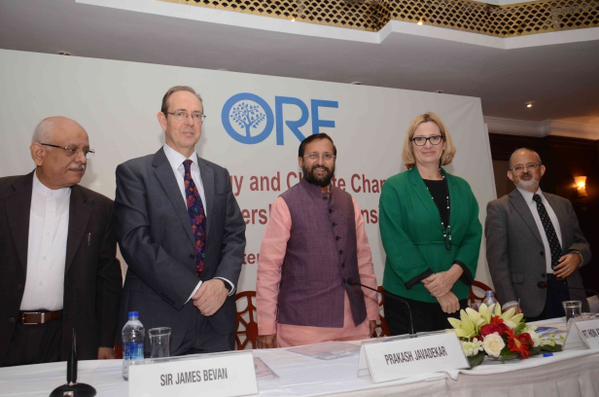
Low-carbon technology can be another string to the bow of the UK-India relationship, Energy Secretary Amber Rudd said on a visit to the sub-continent.
Rudd, who was in New Delhi to open the Observer Research Foundation event on technology and climate change, said both countries had a shared vision for energy secure, low carbon and climate resilient economies.
“Studies like the New Climate Economy Report have shown that we do not have to choose between saving the planet and promoting growth – with the right policies we can do both,” she said.
“Low-carbon growth is the key. India can show the rest of the world how. I would like to commend Prime Minister Modi’s hugely impressive renewable energy target of 175 Gigawatts by 2022.”
“The damaging effects on the global energy markets caused by instability in the Middle East are clear to see. Renewable energy can reduce our vulnerability to energy supply shocks.”
Rudd said securing an ambitious agreement in the international climate change negotiations in Paris in December was the best chance to drive the scale of innovation and action needed for a global transition to a low carbon economy.
The UK government has invested around £1.3billion in low-carbon research and development since 2011 but she urged the private sector to invest in technology to “decarbonise” the economy.
At the G7 Summit in June leaders supported a proposal to work together to improve the transparency and coordination of clean energy research, development and demonstration.
Rudd praised Indian Prime Minister Modi’s plans for a global R&D initiative among the world’s solar-rich countries. India has filed over 15,000 applications for patents.
The UK is providing £50 million of funding over five years on a joint programme with India, called Newton-Bhabha.
Funding is being used to set up joint UK-India centres for research in renewable energy with the aim to improve the integration of intermittent renewable energy through energy storage.
Prime Minister Modi is due to visit the UK in November.
